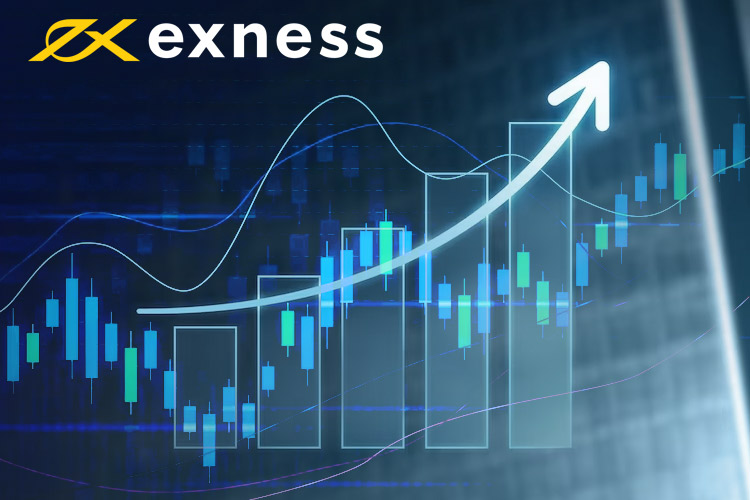
In the world of online trading, bonuses can play a significant role in enhancing a trader’s experience and potential profitability. One broker that offers various bonuses is exness bonus compensation global Exness broker, known for its user-friendly platform and extensive range of trading options. This article aims to delve into the complexities of Exness bonus compensation and how it impacts traders in their pursuit of success.
What is Exness Bonus Compensation?
Exness bonus compensation refers to the incentives provided by the Exness broker to its traders. These bonuses can come in various forms, including deposit bonuses, no-deposit bonuses, and loyalty bonuses, among others. Understanding these bonuses is crucial for traders as they can significantly influence their trading strategies and profitability.
1. **Deposit Bonuses**: These are bonuses that traders receive when they deposit funds into their trading accounts. For example, a broker might offer a 50% bonus on deposits up to a certain amount. This means that if a trader deposits $1000, they would receive an additional $500 to trade with.
2. **No-Deposit Bonuses**: These bonuses allow traders to start trading without any initial deposits. This type of bonus is often used as a promotional tool to attract new clients. For example, a broker might provide a $100 no-deposit bonus that traders can use to explore the platform and its features.
3. **Loyalty Bonuses**: These are rewards given to regular traders based on their trading volume or duration of active trading. Such bonuses encourage traders to stay with the broker and engage more frequently in trading activities.
How Does Bonus Compensation Work?
To fully leverage Exness bonus compensation, it is essential for traders to understand how these bonuses are implemented. Typically, bonuses are credited to a trader’s account upon meeting specific conditions set by the broker. These conditions may include:
– Minimum deposit requirements

– Completion of verification processes
– Specific trading volume thresholds
For instance, if a trader receives a deposit bonus, they may be required to achieve a certain volume of trades before they can withdraw the bonus amount or the profits generated from it. Understanding the terms and conditions surrounding these bonuses is vital to prevent any misunderstandings that might lead to frustration or losses.
Benefits of Exness Bonus Compensation
The primary advantage of bonus compensation at Exness is the additional trading capital it provides. This increased capital can be especially beneficial for novice traders who are still learning the ropes. With extra funds, traders can experiment with different strategies without the risk of losing their own money.
Moreover, bonuses might also serve as a hedge against initial trading losses. For instance, if a trader experiences a string of losses, the bonus may allow them to recover more quickly and continue trading without significant financial strain.
For experienced traders, bonuses can enhance their profitability by increasing their trading limits. With more capital at their disposal, they may take on larger positions, potentially yielding higher returns.
Drawbacks of Exness Bonus Compensation
Despite the numerous benefits, Exness bonus compensation does come with its own set of drawbacks. The most significant consideration is the withdrawal limitations that often accompany these bonuses. Traders may find themselves facing strict rules regarding the withdrawal of bonus funds or profits made from them.
For example, withdrawals may only be allowed after a specific trading volume is reached. This can create a frustrating situation where traders must continue trading with the bonus funds without being able to access their earnings immediately.

Additionally, some traders might be tempted to overtrade in an effort to meet the volume requirements to unlock their bonuses. This can lead to poor trading decisions and, ultimately, losses that outweigh the benefits of the bonus itself.
How to Choose the Right Bonus at Exness
Choosing the right bonus at Exness can be a strategic decision that significantly impacts a trader’s experience. Here are some factors to consider when selecting a bonus:
1. **Trading Style**: Different traders have varying styles, and the choice of bonus should align with these styles. For instance, a trader who prefers to trade small lots may benefit more from a no-deposit bonus rather than a large deposit bonus.
2. **Market Conditions**: The current market conditions can influence the effectiveness of a bonus. In volatile markets, the risk may increase, making it necessary to carefully evaluate whether to utilize bonus funds.
3. **Volume Requirements**: Understanding the volume requirements tied to the bonus is crucial. If the thresholds seem excessively high compared to one’s trading strategy, it might be better to forgo the bonus altogether.
4. **Long-Term Goals**: Traders should reflect on their long-term trading goals. If a bonus is likely to assist in achieving these goals without incurring excessive risk, it may be worth pursuing.
Conclusion
Exness bonus compensation can be a valuable tool for traders seeking to enhance their trading experience. While the additional capital can unlock new possibilities and help mitigate losses, understanding the associated risks and conditions is equally important. By choosing the right type of bonus, aligning it with one’s trading strategy, and adhering to the terms set by the broker, traders can maximize the benefits of these incentives while minimizing potential pitfalls.
Overall, for both novice and experienced traders, taking the time to comprehend Exness bonus compensation could lead to more profitable and fulfilling trading experiences on the platform. As always, it is essential to trade responsibly and remain informed about market dynamics to harness the full potential of any trading opportunity.
